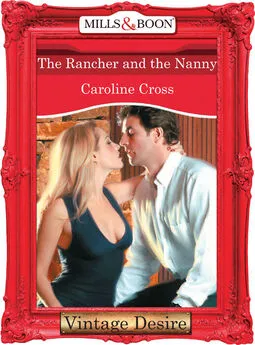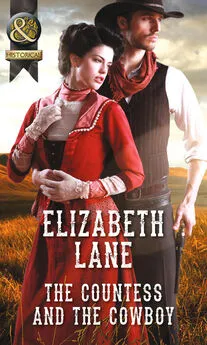John Creasey - The Toff and The Sleepy Cowboy
- Название:The Toff and The Sleepy Cowboy
- Автор:
- Жанр:
- Издательство:неизвестно
- Год:неизвестен
- ISBN:нет данных
- Рейтинг:
- Избранное:Добавить в избранное
-
Отзывы:
-
Ваша оценка:
John Creasey - The Toff and The Sleepy Cowboy краткое содержание
The Toff and The Sleepy Cowboy - читать онлайн бесплатно полную версию (весь текст целиком)
Интервал:
Закладка:
“I said lost,” repeated Loman.
“I said stolen.”
“Can you prove it was stolen?”
“I can prove you had a shot in the arm. Look hard enough and you will see the puncture.”
The young man said: “So I put myself to sleep.”
“With what?”
“A shot,” Loman answered.
“Where did you put the hypo?”
“Down the pan,” Loman answered. “I went along there and gave myself a shot and put the plastic hypo down the pan and came back to my seat.”
The nurse managed to ask : “Do you use cream in your coffee?”
“Sure,” said Loman.
“Not for me,” answered the doctor.
“I use facts,” Luigi said. “Why did you dope yourself, Loman?”
“Like the doctor said, I need sleep.”
“Like I said, I need facts,” retorted Luigi. He picked up a cup of coffee which had neither cream nor sugar, and sipped; his gaze did not once leave Loman’s face, but the young man stared back without apparent embarrassment.
“What did you have in your baggage?” Luigi asked. “Clothes.”
“In your hand baggage?”
“A razor and toiletries and two books.”
“What kind of books?”
“Adult books,” the young man answered amiably. “I’m an adult.” He finished his coffee, and turned to the doctor as if he were no longer interested in the policeman. The nurse had moved away and was looking from one to the other as if she could make nothing of the conversation or of the situation. “Doctor,” went on Loman, “I’m appreciative of the trouble you’ve taken and I’ll be glad to pay your fee right now. That’s if someone will hand me my billfold,” he added with a boyish grin.
“The nurse will get that,” the doctor replied. “You take it easy.”
“As soon as I’m dressed and in the B.O.A.C. lounge I’ll take it easy,” Loman assured him. “I don’t need to eat, there will be food on the aircraft.” He finished the coffee, and smiled at the nurse. “Okay for me to have the rest of my clothes now?”
She answered: “I still think you’re crazy.”
“My folks often used to say just the same thing,” Loman assured her, but now there was something so attractive in his smile that she half-laughed, and fetched his jacket.
Luigi went outside, and found the Security Officer hovering. The man crossed to him at once, and asked in his hard, controlled voice:
“Is he making a complaint?”
“He will, if he’s no fool.”
“Luigi,” the Security Officer said, “you don’t have to be like this.”
“It’s just the way I am,” replied Luigi, and went on: “He’s going to fly on to London. He’ll ask you to look for his luggage and send it on to him, and if I were you that’s exactly what I would do.”
The Security Officer said: “So there’s no complaint.” He looked relieved as he nodded and moved away, almost as Thomas G. Loman came out. He pretended not to notice the man from Homicide but went with long strides towards the air line’s desk and made his complaint about lost luggage, asking for it to be sent on. A young girl with a magnificent honey-brown skin took details, then asked:
“What is your forwarding address in London, sir?”
“Care of Richard Rollison,” Loman answered. “Number 25g, Gresham Terrace, London, W.I.” He spelled out both the name of the man and the street, then moved away. He did not bump into Luigi, only because Luigi darted back quickly. Loman towered a head and shoulders above the policeman, who asked:
“You want to go to the B.O.A.C. terminal?”
“I don’t want to go to police headquarters.”
“Something on your conscience?” flashed Luigi. “I’ve got a flight waiting for me.”
“Loman,” Luigi said. “I won’t give you the runaround. I’ll take you to B.O.A.C. departures if that’s where you want to go.”
“That’s where I want to go,” the man from Tucson declared.
Luigi Tetano drove him there with the speed and roadway knowledge more characteristic of a taxi driver than a policeman, and watched him check in. No one appeared to be surprised that he was early, the only surprise was about his lack of luggage. Soon, he went up the escalator and out of Luigi’s sight. The policeman left his car again and went to a telephone booth just inside the departure building, while aircraft roared and screeched overhead. He dialled a friend on the staff of the New York Times, and when the other man answered, said:
“Ben, you know London pretty well, don’t you?”
“I’m not sure I don’t know it better than New York,” answered Ben. “Are you forgetting I was the London correspondent for five years?”
“I half-remembered,” Luigi replied drily. “Can you tell me anything about a guy named Rollison?”
Without even an instant’s pause the other repeated, like an echo: “Rollison! Richard Rollison?”
“That’s right, he lives —”
“Luigi,” the newspaperman said, “I know plenty about Rollison. If you take my advice, you won’t tangle with him.”
“I don’t believe the criminal I won’t tangle with exists,” retorted Luigi. “What’s so special about him?”
“He’s not a crook,” answered the Times man.” ‘Private eye’ isn’t the right description but you would call him one. He doesn’t know the criminal he won’t tangle with, either. He —” there was a pause, a sharp intake of breath, another pause, then a deep-voiced question redolent of suspicion. “What do you want with the Toff ?”
“The who?”
“The Toff. T — O — F — F,” the Times man spelled out. He allowed just enough time for the spelling to register on Luigi’s mind before repeating : “I’ll tell you what I know about the Toff when I know why you want the information. You come clean, Luigi, and I will.”
“Off the record,” Luigi said.
“Off the record,” agreed the newspaperman. “In the beginning, anyway.”
“Okay,” agreed Luigi. He told the story in outline, answered a few questions, and then in a tone of deep finality he declared: “That’s plenty, Ben. Now you tell me all you know about this Rollison — this Toff. What is a Toff, anyway?”
3
A Toff is a Toff
THE HONOURABLE RICHARD ROLLISON, known to SO many as the Toff, stood at a corner of his large, flat-topped, heirloom desk on the top floor of 25g Gresham Terrace, London, W.’, the telephone held in one hand and a pencil in the other. Silence was coming from the telephone, the faintest of aromas creeping from the domestic quarters of this unusual, indeed unique flat, as Rollison gazed pensively at his Trophy Wall.
He was a tall man, and lean.
Like Thomas G. Loman, he was surprisingly strong and muscular.
Unlike Thomas G. Loman, he was remarkably hand-some, classic in the Ronald Colman style, with the same hint of virility and humanity in his good looks. The years had passed lightly over him despite many dangers and crises, his hair was dark with only a touch of grey here and there, adding a note of distinction. He had well-marked eyebrows and his skin had a weathered look; what few lines there were at forehead and eyes seemed due more to concentration than to years.
He was not young in the sense that teenagers are considered to be young, but he was a century away from being old. In most moods, and this was one, he had exemplary patience, and the silence from the telephone did not worry him.
In fact, he was day-dreaming.
It was comparatively early in the morning; half-past eight. He had been at the home of friends the night before, and back here late, so when the telephone had disturbed him he had not woken easily. It had been the overseas operator to ask if he could take a call from New York in half an hour’s time. So he had had time for his tea in bed, to scan the newspapers, even to shave. By the time the telephone bell had rung again he had been in this room. Waiting.
And studying the Trophies.
That was his man’s word for the strange assortment of objects on the wall behind the desk, and it was a good choice, for each was indeed a trophy of the hunt. In every case the quarry had been human, in most cases a man, but some had been women.
All were murderers.
Many had been hanged, before the laws of England had so changed that men and women were no longer hanged by the neck until they were dead, but sentenced, on conviction of murder, to ‘life’ imprisonment. Rollison kept an open mind on the subject of capital punishment but did not think that ‘life’ should prove, as it so often did, no more than nine or ten years in prison. Yet there were murderers whom he would have let off scot-free had he been judge and jury.
But none such as those he had been hunting until they had died or had been caught and tried, and later represented on this wall. For these trophies were of deadly killers; mostly evil men. The small tube of poisons reminded him of the hideous doctor who gave prostitutes a drug to make them scream and writhe — and while they were in contortions of agony the doctor possessed them. The top hat had two bullet holes; the second had knocked the hat off his head, some nine years ago. The lipstick had contained potassium cyanide, so that the user, breaking a thin coating protecting the lethal dose, had daubed her lips and died. Even the nylon stocking, looking solitary and strangely seductive draped over a skeletal foot, had been used to strangle a woman.
These things Rollison remembered as he waited.
He saw his man, Jolly, appear at the door leading from the kitchen, and sadly shook his head; Jolly by now, would have bacon and eggs all ready for the pan and would be exasperated by this delay.
Suddenly, a man said: “Mr. Rollison?” in an unmistakable American voice.
“Yes,” Rollison said, almost startled.
“Mr. Rollison, I’m sorry to bother you at this time, but my name is Selly, Jim Selly, of the New York Times. You might even remember me.”
Vaguely he did, thought Rollison, but he made a non-committal noise, and allowed Selly to go on:
“Mr. Rollison, are you expecting a visit from a friend from Arizona?”
“From where?” asked Rollison, startled again. “From Tucson, Arizona.”
“I’m afraid I have to say that I’m not,” replied Rollison. “I’m not expecting a visitor from anywhere in America, and I don’t think I know anyone in Tucson —or Arizona, for that matter.” He wondered why a news-paperman should call to ask such a question, but news-papermen were strange creatures with insatiable appetites for new twists and angles, so he did not wonder deeply. “Why do you want to know?”
“Are you sure you don’t know anyone from Tucson, Arizona?” Selly sounded acutely disappointed. “I am positive,” insisted Rollison.
“This man’s name is Loman — L-O-M-A-N. Is he a friend of yours?”
“Not,” answered Rollison, feeling wide awake for the first time, “unless he has changed his name. Why do you think I know a Mr. Loman?”
“He said that he knew you,” Selly answered.
“Oh,” said Rollison, baffled. “And is he on the way to see me, do you say?”
“Yes,” replied the newspaperman, and he paused. Rollison had a feeling that he was going to ask again ‘You’re sure you don’t know the man’ but thought better of it. “Well, thank you,” Selly went on. “Goodbye, sir.”
He rang off.
Rollison put down his receiver, still puzzled and more than a little frustrated. Selly might at least have told him more about this Loman from Arizona. He was contemplating the wall without really seeing it when Jolly appeared again. Jolly was half a head shorter than Rollison, an elderly man who had sad-looking, dark brown eyes, deep lines all over his face and a dewlap which had become wizened; he had the general appearance of a man who had once been fat but, after much self-sacrifice, had become thin; and dyspeptic. He had served Rollison since his schooldays, and these men were close friends.
Читать дальшеИнтервал:
Закладка:










